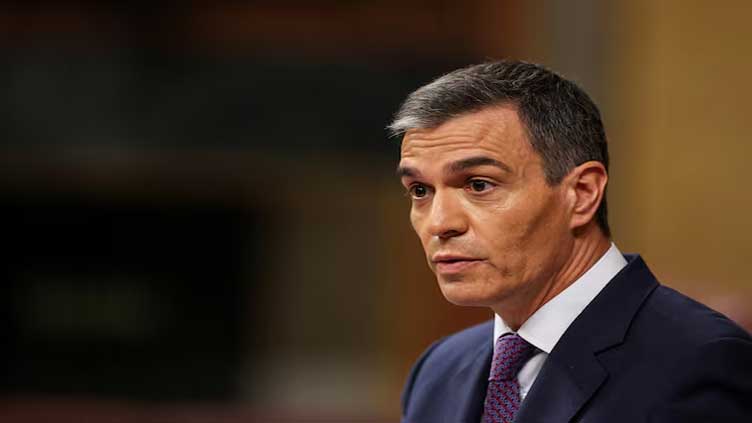Spain proposes tightening rules on media to tackle fake news

World
Spain proposes tightening rules on media to tackle fake news
MADRID (Reuters) - Spain announced measures on Wednesday designed to curb the spread of fake news, an initiative blasted by the country's conservative opposition as an attempt to censor critical media.
"Without free media of quality, there is no democracy," Socialist Prime Minister Pedro Sanchez said in an address to the lower house. "Without reliable and diverse sources of information, the citizens are blind."
The proposal comes at a time when the debate about media freedom and the policing of harmful or misleading content has intensified with the European Parliament election and other elections in Europe, India, and the United States.
In Spain, like elsewhere, newer forms of news presentation such as on social platforms and messaging and video apps are becoming more influential in political discourse and can reach audiences far larger than traditional media.
Sanchez said the rules would be aimed at all media.
They would bring Spain in line with the European Media Freedom Act approved in March. That act is designed to regulate the media but also shield journalists from state spying or being forced to reveal their sources.
The conservative People's Party questioned the timing of the bill as it comes two days before Sanchez's wife Begona Gomez is due to appear in court as part of a corruption investigation case that has been dismissed by her husband as fake news whipped up by right-wing media with the support of opposition parties.
The bill is a "law of censorship", the conservative People's Party, the largest in the lower house, said in a post on the X platform. Sanchez "now seeks to control the critical media, let's defend freedom of speech", it said.
Sanchez said the government would not give a "stamp of approval" to any media.
Sanchez also proposed requiring media to identify all shareholders with influence over editorial policy, the amounts they receive in publicly funded advertising and from third countries, and transparent audience data.
He also announced a 100 million euro ($109 million) subsidy to help traditional media to go digital.


